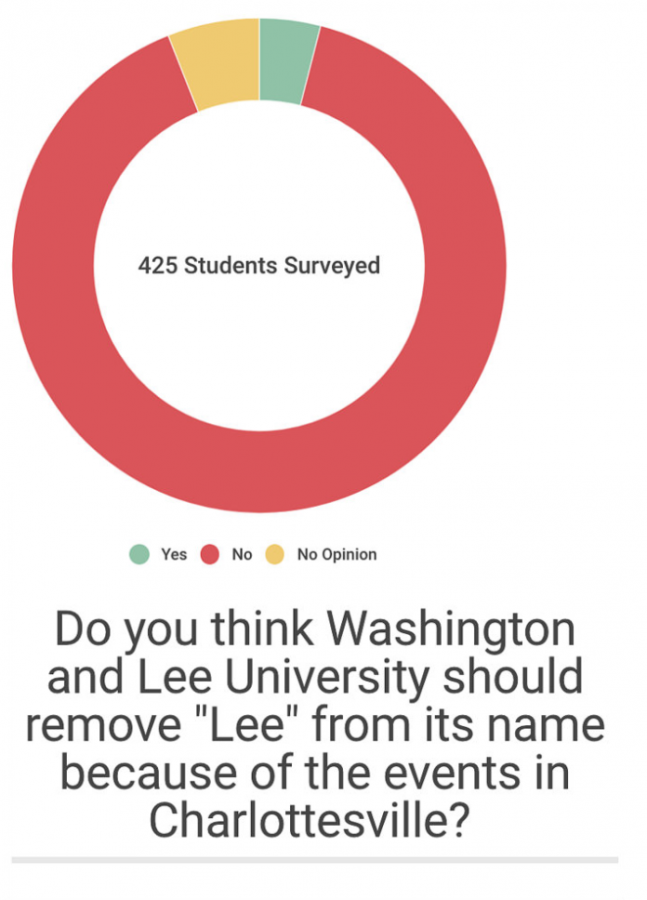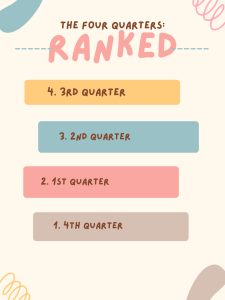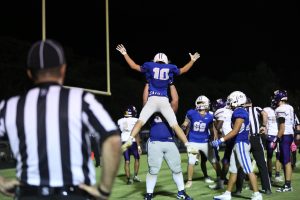Washington and Lee Responds to Charlottesville
November 22, 2017
After the attacks in Charlottesville, Va. by the Ku Klux Klan and neo-nazi groups over this past summer, discussions on Confederate monuments and history have rekindled at Washington and Lee University. The W&L community has now been forced to respond to critics around the country who call for the removal of all Confederate statues and symbols from college campuses nationwide.
W&L was founded in 1749 as Augusta Academy. The school was then re-named to Washington College after George Washington donated a large sum of money to the school in 1796. Following the Civil War, General Robert E. Lee served as president of the college until his death in 1870. As president of the college, Lee changed the school in many ways that remain a part of its identity today. He added the nation’s first journalism, engineering, law, and business courses to the liberal arts school. Additionally, he created the honor system and speaking tradition. Following his death, the school was then re-named to Washington and Lee.
Criticism against W&L’s deep history and association with Robert E. Lee and the Confederate States of America has been going for several years. In 2014, a group of African-American law students created an organization called “The Committee” and called for the removal of all Confederate flags from the campus and for the school to recognize Martin Luther King Day as a school holiday.
In a 2017 interview with Law.com, W&L law grad and co founder of “The Committee,” Dominik Taylor, explained his thinkings and goals for his organizaton.
“We did it [create “The Committee”] with four specific aims all centered around increasing inclusiveness and creating a better campus environment for minority students and all students generally,” said Taylor. “He’s (Robert E. Lee) buried on campus along with his wife and even his horse Traveller. There’s a monument that he’s buried underneath. There’s a statue that depicts him in Confederate garb. What we were trying to do was question what had happened in the past and tie it to how alienated and misunderstood we felt as minority students.”
Washington and Lee responded by removing the flags and granting students a holiday for MLK day.
“Shortly after we formed The Committee, the university did indeed remove the Confederate battle flags from Lee Chapel,” said Taylor. “All our demands were met. But it’s an ongoing struggle.”
Following the Charlottesville attack, newly inaugurated president of Washington and Lee, Will Dudley, released a statement on Aug. 14, condemning the attack and attempting to explain the university’s stance on the issue:
“W&L and Lexington have a complex history with regard to the Confederate symbols and figures around which these hateful groups are rallying. This gives us a special obligation to absolutely clear about what we stand for as an institution. We value the essential contributions of both George Washington and Robert E. Lee to making the university what it is today… We also remain steadfastly and actively committed to creating an increasingly diverse and inclusive community, built on the common values of civility, integrity and respect. These values – W&L’s institutional values – are antithetical to the vile ideologies that we saw on full display in Charlottesville.”
Ten days later, Dudley released another statement titled, “A Message from President Dudley Regarding Institutional History and Community,” in which he addressed Lee’s role in the school’s history and announced the creation of a Commission on Institutional History and Community.
“ [The Commission on Institutional History and Community] will be composed of students, faculty, staff and alumni, to lead us in an examination of how our history – and the way that we teach, discuss and represent it – shapes our community,” Dudley’s statement says. “Washington and Lee will continue to be guided by our motto – non incautus futuri – and steadfast in our mission. We provide an education that prepares students to think critically, act with integrity, and participate as engaged citizens in a global and diverse society. That mission, which we all take pride in serving, makes it incumbent upon us to create and sustain an increasingly diverse and inclusive campus that reflects the world in which we live.”
Along with Dudley’s responses, numerous professors and students at Washington and Lee have responded to the events in Charlottesville and shared their views on the role the school should have dealing with it’s confederate history in the future.
Some students and alumni have criticized Washington and Lee’s response to the Charlottesville terrorist attacks and have called on the school to do more.
In a New York Times Op-Ed, 2016 Washington and Lee graduate and co-valedictorial, Pasquale S. Toscano said: “We all have the duty to reject the narratives about heritage that have been popularized by those who strive to make Confederate pride more palatable…A new name for the college might be well appropriate – especially since we could revert to one of several former names – but the best defense against taking such drastic action is to be vigilantly honest about Lee’s blemished legacy. The founding fathers established the world’s oldest, still-active Constitution…Robert E. Lee fought against this ideal. It’s not hard to distinguish those who provided the intellectual framework for American rights for those who did everything they could to rend it apart.”
The W&L history department released a statement on Sept. 8, in which they proposed ideas for how to preserve Confederate history.
“We recognize how this institution’s history provides us with a unique opportunity and obligation to grapple with difficult historical questions and to dismantle the historical myths that have helped to whitewash racial violence and inequality in this country,” said the statement. “One proposal to curate the university’s existing monuments in partnership with professional public historians has already been developed by Department staff…another, to create a Civil War Research Center has been submitted.”
Within the first week of school, Washington and Lee’s Executive Committee released a resolution which called for civility and peace when debating this topic. The resolution “condemns racial ideologies” and calls for “nonviolent civil discourse and respectful interaction.” At the time of writing this, the resolution has been signed by 417 students.
As the school year continues, President Dudley and Washington and Lee will be working towards informing their community and students on the role Confederate history had in the past and striving to create a more inclusive university.








